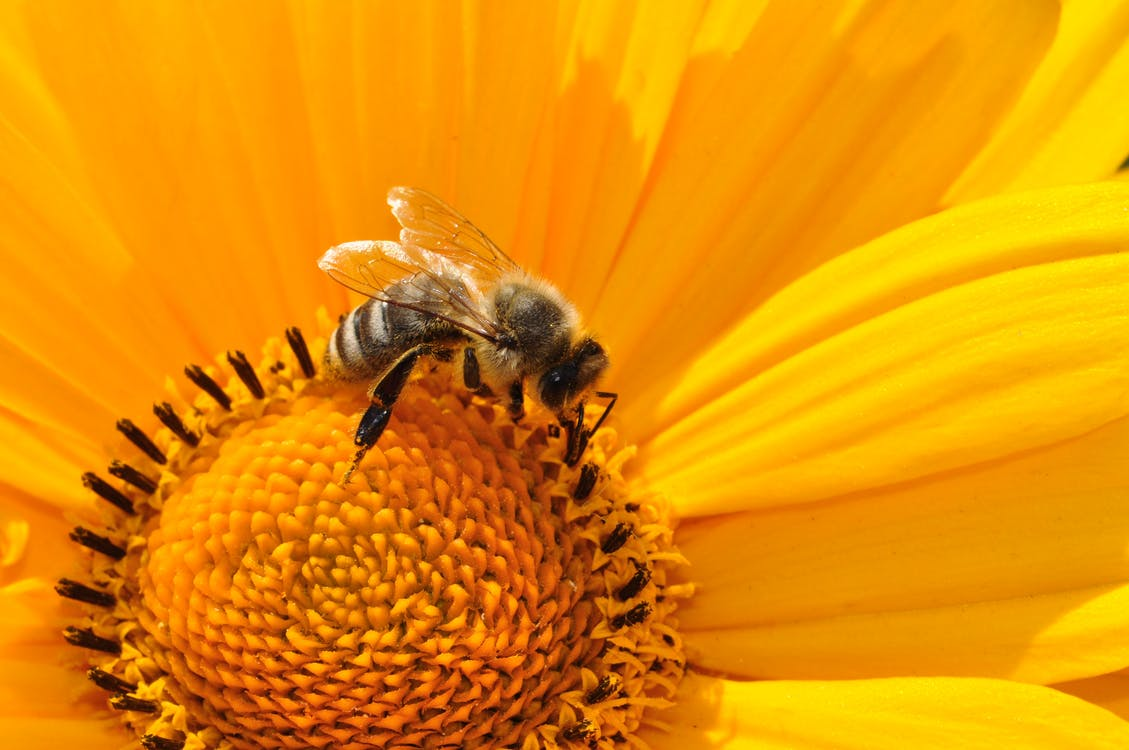In the past decade, the plight of the honey bee has become a staple in the news… and rightfully so. Bees are important to maintaining not only a well-balanced ecosystem, but a well-balanced food supply. As pollinators, bees are relatively easy to care for and highly efficient, making them difficult, even impossible, to replace. That’s why, when they started disappearing, everyone freaked out.
From microscopic mites to neonicotinoids, there are dozens of theories about what’s happening and why. In reality, no one knows for sure what causes Colony Collapse Disorder. Luckily, private citizens and beekeepers are picking up slack for the commercial operations and taking care of the bees themselves. As a result, bee populations are on the rise around the world. Here are five things you can do right now to help keep it that way:
From microscopic mites to neonicotinoids, there are dozens of theories about what’s happening and why. In reality, no one knows for sure what causes Colony Collapse Disorder. Luckily, private citizens and beekeepers are picking up slack for the commercial operations and taking care of the bees themselves. As a result, bee populations are on the rise around the world. Here are five things you can do right now to help keep it that way:
- Buy local honey. It might seem simple, but buying honey from your local beekeeper is one of the biggest ways you can help maintain the honey bee population right where you live. Beekeeping isn’t especially difficult, but it does require time and money. Many beekeepers bottle and sell their honey, not to make a profit, but to recoup some of their investment in raising the bees themselves. So, next time you see a roadside stand or booth at the local farmer’s market, grab a bottle of the good stuff. As an added bonus, local honey is fresh and unprocessed, unlike many store-bought brands, and it boasts a lot of health benefits.
- Plant a bee garden. Flowers are food for bees. As they hover over the bright blossoms, they are actually collecting pollen or nectar. So, planting a small garden is an easy way to feed the bees in your own backyard. While our winged friends like some flowers more than others, a bee garden can consist of just about any type of flower, plant, or tree you like… as long as it blooms. If you’re feeling really generous, you can also leave out a small platter or bowl of water for bees to bathe in and drink too. Just be sure to dump it out every few days to prevent mosquitoes from laying eggs in it.
- Use pesticides wisely. Contrary to popular belief, it is entirely possible to get rid of the insects you don’t want at your home and keep the ones you do. If you treat your property yourself, simply be careful to avoid applying insecticides in the places bees and other beneficial insects spend their time. That means you shouldn’t treat flowering plants of any kind, from wildflowers to vegetable gardens. And if you employ a pest control service to rid your property of mosquitoes or other nuisance insects, be sure they have a bee-friendly policy in place.
- Don’t kill them. If you or someone in your family is allergic to or deathly afraid of bees, you probably don’t want them around. That’s okay. If bees become a nuisance, don’t try to get rid of them yourself. Instead, call a professional. Beekeepers in your area will likely be more than happy to come remove a swarming hive and, since they’ll be able to rehome the bees, they may even do it free of charge.
- Become a beekeeper. After years of decline, beekeeping as a hobby has become popular once again. Thanks to new technology, increased access to information, and a renewed interest in bee health, it’s now easier and less expensive to raise bees than ever before. You can do it just about anywhere, from urban rooftops to rural pastures. You can even get started for free!


 RSS Feed
RSS Feed
